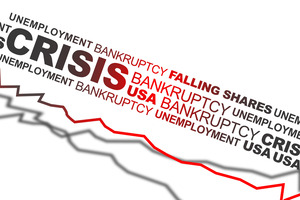
What Are Security Clearances?
Security clearances are granted to individuals who require access to classified information for their job.
There are three primary levels of security clearance:
- Confidential
- Secret
- Top Secret
The higher the clearance, the more rigorous the background check and the more significant the access to sensitive information. Obtaining a security clearance involves a thorough investigation into your personal, financial, and professional history to assess your trustworthiness and reliability.
How Financial Issues Impact Security Clearances
Financial stability is a critical factor in the security clearance process. The government evaluates an individual’s financial situation to determine their susceptibility to bribery, coercion, or other compromising situations. Financial problems, including excessive debt or filing for bankruptcy, can raise red flags during the clearance assessment. However, declaring bankruptcy does not automatically disqualify you from obtaining or retaining a security clearance.
Honesty and Transparency
Honesty is very important during a background check. If you have financial difficulties, it’s crucial to disclose this information upfront. Attempting to hide financial problems can be far more damaging to your clearance prospects than the issues themselves.
Circumstances Matter
The reasons behind your financial troubles are also taken into account. Unforeseen events such as medical emergencies, job loss, or other unavoidable circumstances are viewed more sympathetically than reckless spending or financial mismanagement. Demonstrating that you have taken steps to address and resolve your financial issues can mitigate concerns.
Debt Resolution Plans
If you are actively working to repay your debts through a structured plan, this shows responsibility and a commitment to fixing your financial situation. Bankruptcy can sometimes be seen as a responsible step if it provides a clear path to financial recovery.
Alternative Options to Bankruptcy
For individuals concerned about the impact of bankruptcy on their security clearance, there are alternative debt resolution strategies that might be less damaging.
Debt Consolidation
Combining multiple debts into a single loan with a lower interest rate can make repayment more manageable. Debt consolidation can simplify your financial situation and demonstrate debt management.
Credit Counseling
Working with a credit counseling agency can help you develop a debt management plan. These agencies negotiate with creditors on your behalf to reduce interest rates and create a structured repayment plan. This shows your commitment to resolving your debts responsibly.
Negotiating with Creditors
Directly talking to your creditors to arrange repayment terms you can handle can be an effective strategy. Creditors may be willing to work with you to avoid the lengthy and costly bankruptcy process.
Budgeting and Financial Planning
Developing a strict budget and sticking to it can help you regain control over your finances. Financial planners can offer valuable advice on managing your money, reducing expenses, and increasing savings to pay down debt.
While financial difficulties can complicate the security clearance process, they do not necessarily disqualify you from holding a clearance. However, considering alternative debt resolution options can help you manage your financial situation without the potential repercussions of bankruptcy.
If you’re facing financial challenges and thinking about your security clearance, consulting with a financial advisor or attorney can provide personalized guidance tailored to your specific circumstances. Contact the Law Offices of Robert M. Geller to schedule a free consultation with an experienced attorney.




























![Signs That You May Need to File Bankruptcy [Infographic]](https://djml3wkzi26ea.cloudfront.net/wp-content/uploads/2021/01/signs-chap7-v-chap13.jpg)
![How To File for Bankruptcy [Infographic]](https://djml3wkzi26ea.cloudfront.net/wp-content/uploads/2020/07/bankruptcy-steps-infographic-web.jpg)










